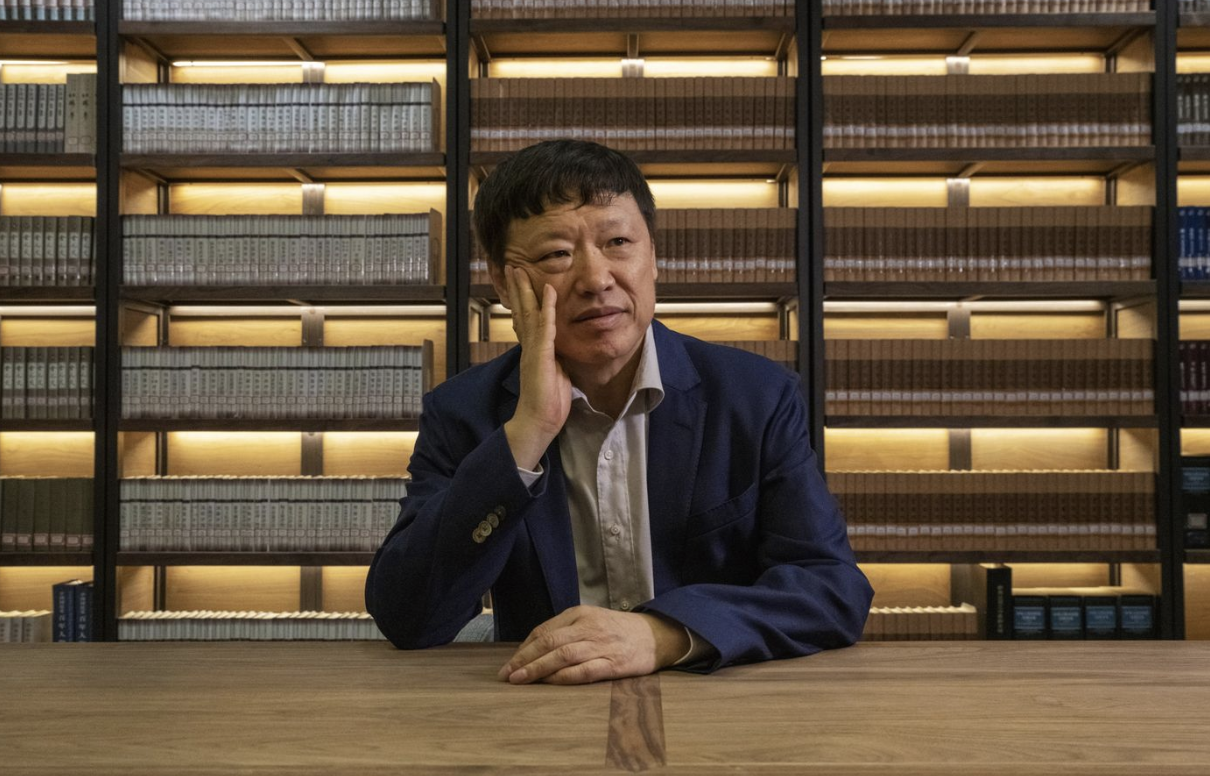Roughly six months ago, after President Trump and President Xi reportedly struck a deal on the sidelines of the G-20 Summit in Buenos Aires to put the next escalation of tariffs on Chinese goods on hold to allow time for the two sides to negotiate a trade deal, a tweet from a then-obscure editor of an English Language Chinese newspaper sent markets reeling when he disputed the veracity of these reports – confirming only that “talks are underway.”
I learned from source close to China-US trade talks that speculations of trade negotiations will be extended are inaccurate. The only thing that is certain now is the talks are underway.
— Hu Xijin 胡锡进 (@HuXijin_GT) February 14, 2019
To the best of our knowledge that was the first time that Hu Xijin, the editor in chief of the Global Times, an English-language newspaper run by China’s “People’s Daily”, demonstrated how much of an impact one of his tweets could have on global markets. Since President Trump announced his plans to raise tariffs on Chinese goods, Hu’s tweets – for example, a warning last week about the risk of visa issues for Chinese students, or a tweet early last month warning that the chances of a deal in the near term were basically “zero” – have often been harbingers of official Chinese policy pronouncements.
Hu Xijin
Six months later, and news organizations like Bloomberg are comparing Hu’s twitter feed to President Trump’s, which is unsurprising given President Xi’s well-known reticence when it comes to direct public communication and his preference through dictating his will through layers of bureaucrats and functionaries.
In other words, Hu has become so well known in the west, that he’s finally warranted his own profile in the American financial press. But since Bloomberg has a team of reporters in China whose access we imagine it wants to preserve, the piece pays a surprising amount of deference to Hu’s claims that he’s not a member of, or in any way affiliated with, the Communist Party, and that his tweets don’t constitute officially sanctioned pronouncements, feeding into Beijing’s official position that the Chinese press operate independently of the central government, with a level of autonomy similar to journalists in the West (a similar dynamic was at play during a recent ‘debate’ between Fox News’ Trish Regan and a popular Chinese TV host).
One investor compared Hu’s twitter feed to the closest thing that Beijing has to President Trump’s in terms of its influence over Western markets.
Larry McDonald, the founder of investment newsletter Bear Traps Report, described the feed as a “Chinese Communist version of Trump’s Twitter.”
“A lot of fund managers and investors we know are watching Hu’s Twitter account closely, as it provides key information about China’s stance on the trade war and other issues,” McDonald said. “Hu’s Twitter is seen as China’s way to fight back. It is a negotiation tactic by the Chinese Communist Party.”
Chinese officials interviewed by BBG for its story wouldn’t confirm any official relationship between Hu and the Communist Party…
How closely Hu’s message conforms to the official point of view remains unclear, although he sometimes cites an “authoritative source” or people “close to the negotiations.” Hu suggested that he, like many in China’s heavily censored media environment, operates within boundaries that are defined largely by what you get away with.
“My background carries a certain amount of authority, but I also speak on issues that other state media keep quiet about,” Hu told Bloomberg. “I was appointed by the People’s Daily. The authorities have absolute control over me and can take me down easily.”
One detail to watch: Hu said tweets that are “based on what I know” are “definitely true.” He used that or similar phrases in his posts about FedEx, the student warnings and China’s move to create a blacklist of foreign companies.
China has distanced itself from Hu tweets when asked by reporters at the foreign ministry’s regular news briefings. “As a general rule, we do not respond to the opinions or comments of experts, scholars, media and think tanks,” ministry spokesman Geng Shuang said May 14 in response to a query about Hu’s Boeing tweet.
…But tellingly, much of what Hu tweets regarding developments in the US-China trade war aren’t shared on Weibo, where he has a much larger following. Keep in mind, Twitter, like most American social media, is blocked by China’s ‘Great Firewall.’
Chinese authorities likely view the editor as a useful conduit to an overseas audience, similar to English-language state media services such as the China Daily newspaper and the China Global Television Network. Tellingly, Hu doesn’t share his predictions of official action with his much bigger fan base of 19 million followers on the largely Chinese-language social media platform Weibo.
So, is Hu one of the few extremely well-sourced quasi-independent journalists operating in a media ecosystem where he’s forced to push try and get away with as much as he can get away with in order to bring his (mostly western) audience the truth? Or is his his twitter feed effectively an economic weapon wielded by the Communist Party against American equity markets as just another instrument of pressure in what has become a sprawling trade spat?
We’ll let you decide.
via ZeroHedge News http://bit.ly/2WBJZX5 Tyler Durden
